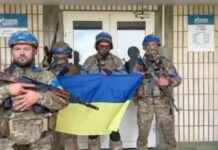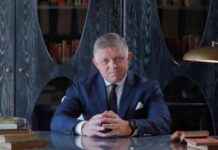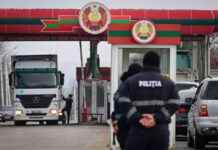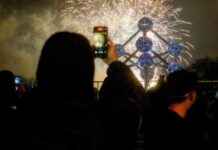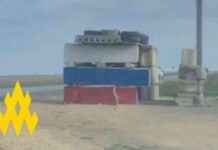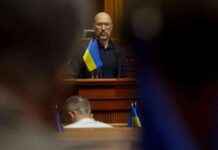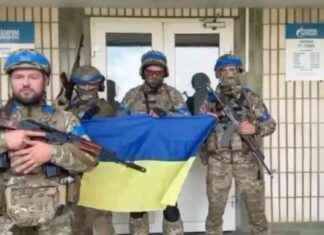Now in the fourth year of its full-scale resistance, Ukraine continues to defy the assumptions of a Western world that, in February 2022, largely expected its rapid collapse. Ukraine’s belief in freedom runs deep in its history. The national poet Taras Shevchenko believed in the unifying power of the struggle for freedom among Ukrainians. His writings “inspired Ukrainians to dream of freedom while angering Russian official censors.” This spirit was rooted in the legacy of the Cossacks, who built a tradition of self-rule and resistance to foreign domination. Yet while both the West and Russia have long believed they “know” Ukraine, both have consistently misjudged its resilience. Russia’s first invasion in 2014 should have triggered a deeper reckoning across the West to confront the imperial logic and deeply rooted ideology that has driven Russia to genocidal intent against Ukraine. Yet Ukraine’s story remains too often misread or reduced. Its past is compressed, its identity filtered through a Russian lens, and its struggle diminished to the language of great power competition in the view of the new Trump administration. Westerners see Ukraine the same way Russians do: without agency. This strategic blind spot led to devastating consequences in the lead-up to the full-scale invasion. The US and other Western governments initially believed that supplying Ukraine with heavy weapons wouldn’t change the outcome of Russia’s invasion, and therefore withheld critical military aid, such as heavy weaponry. When Western governments warned Zelensky of the looming invasion, Ukrainian requests for military supplies were often ignored or delayed – warnings were issued, but heavy weaponry were withheld. Germany, Europe’s largest economy, offered minimal support, sending just 5,000 helmets and, according to former British Prime Minister Boris Johnson, even suggested Ukraine should surrender to avoid a prolonged war. Germany’s finance minister reportedly believed Kyiv would fall within hours. Johnson also claimed France remained “in denial” about the invasion until the last moment. Still, Ukraine defied these grim expectations. “We’ve earned the trust and support of dozens of nations. We’ve broken through walls of Western fear, hesitation, and passivity, the appeasement. Ukraine’s victory in the Battle of Kyiv in 2022 changed the course of European history when the best military minds were giving us 72 hours,” said Ukrainian journalist Illia Ponomarenko. This early underestimation still shapes Western perceptions today. “The underestimation of Ukraine currently leads to a blind spot when it comes to understanding Ukraine’s readiness to resist US pressure in the context of Trump’s efforts to end the war,” said Maria Popova, Associate Professor in the Department of Political Science at McGill University. “A big reason why a significant part of the left sees Ukraine as simply a ‘US proxy’ and a significant part of the right also thinks Trump can just order Ukraine to sign whatever deal is that both know nothing about Ukraine’s own goals and the intensity and unity of commitment to them,” said Popova. Ironically, one of the few things the far left and far right agree on is the notion that Ukraine lacks agency. Popova also highlighted that Western policymakers have devoted far more effort to understanding Russia’s motives than Ukraine’s, which has skewed perceptions. This imbalance often leads to justifying Russian aggression, overstating its military strength, and treating it as a trustworthy negotiator, while underestimating Ukraine’s determination and ability to resist. John Vsetecka, Assistant Professor of History at Nova Southeastern University, explained that this imbalance stems from Cold War-era academic structures. “There is, without question, a bias toward Russian Studies programs around the globe,” he said. “Cold War-funded area studies developed out of a need for the US defense sector to ‘study the enemy.’ The ‘Soviets’ quickly became equated with ‘Russian,’ which had a lasting impact… These centers largely became oriented around studying Russia… and the experts who developed their research agendas during the Cold War and after were the ones that largely shaped US foreign policy decisions.” This misunderstanding is not new. When Ukraine gained independence in 1991, Russia’s first elected president, Boris Yeltsin, refused to abandon the Kremlin’s imperial mindset toward Ukraine. America’s first ambassador to the Russian Federation, Robert Strauss, later acknowledged that Yeltsin had discussed the possibility of a nuclear strike with military experts during the collapse of the Soviet Union. Though the threat was never carried out, it revealed the depth of Moscow’s anxiety over Ukrainian sovereignty. As the Soviet Union disintegrated, Yeltsin also warned that Russia reserved the right to review its borders with any neighboring republic that chose to leave, including Ukraine and Kazakhstan. Yet, each US president believed in engagement and trying to build stronger ties with Russia. George W. Bush famously said of Vladimir Putin: “I looked the man in the eye. I found him to be very straightforward and trustworthy” – a quote that certainly has not aged well. The West, too, failed to see Ukraine clearly. Ilona Sologub, editor at Vox Ukraine, noted that the misunderstanding reflects a longer historical pattern: “Remember Bush-senior’s ‘Chicken Kiev’ speech or Obama’s ‘reload’ of relations with Russia after it invaded Georgia in 2008,” she said. “Trump is really an extreme, but this mindset that ‘small countries should do what large countries say’ has always been there.” This pattern seems to have persisted even in the face of new aggression. Repeating the same mistakes In early 2022, US General Mark Milley warned that Kyiv could fall within 72 hours if Russia invaded, underestimating Ukraine’s ability to resist. In 2014, Vladimir Putin told the European Commission that Russian forces could reach Kyiv in two weeks, reflecting his imperial assumptions. Both views – one from an ally, the other from an enemy – made the same mistake: underestimating Ukraine’s will to fight. Even the Biden administration, along with other Western leaders, urged President Volodymyr Zelensky to evacuate. Representing the will of a nation under siege, Zelensky’s retort was defiant and unforgettable: “I need ammunition, not a ride.” Orest Deychakiwsky, who spent 35 years at the US Helsinki Commission, noted that “Biden’s team had a fairly good understanding of Ukraine – certainly far better than the current administration, although that’s admittedly a low bar.” He added that “the Biden Administration’s shortcomings with respect to Ukraine were not the result of ignorance but rather due to other factors, notably the fear of nuclear escalation.” Still, old habits persisted. One Ukraine analyst told me: “Even under Biden, American political analyst Samuel Charap – who has been publicly criticized for promoting Russia-beneficial policy – was a regular visitor to the White House. The White House sought advice from a person whose work appeared to further Russian policy objectives. It’s hard to see that as a decision made out of ignorance.” Obama started his presidency by focusing on a “Russia reset” platform. It was ironic that then-Secretary of State Hillary Clinton and Russian Foreign Minister Sergey Lavrov staged a symbolic event where they pressed a red “reset” button, only for the button to be mistranslated as “overload” in Russian. The episode foreshadowed how efforts to appease or reset relations with Moscow consistently underestimated Russia’s ambitions – often at Ukraine’s expense. Much like Trump’s current attempts at engagement, George W. Bush also believed he had found a willing partner in Vladimir Putin. This came despite serious allegations that Putin orchestrated the 1999 apartment bombings in Moscow, attacks that killed hundreds of civilians and were blamed on Chechen separatists, providing the pretext for a brutal war in Chechnya that left Grozny razed and tens of thousands dead. It was a telling moment that reflected the Trump team viewed the conflict and Ukraine itself. At a meeting during his first administration, former Ukrainian President Petro Poroshenko recalled, Donald Trump leaned in and asked if he could get an honest answer to a question. When Poroshenko agreed, Trump asked, “Tell me, is Crimea Russian?” Westerners see Ukraine the same way Russians do: without agency. That mindset has now carried over into Trump’s current approach to Russia’s ongoing war. Trump’s administration is engaged with an imperial power whose leader openly compares himself to Peter the Great and is staking his legacy on the conquest of Ukraine to resurrect a Russian empire. “Peter the Great waged the great northern war for 21 years. It would seem that he was at war with Sweden, he took something from them. He did not take anything from them, he returned [what was Russia’s],” said Vladimir Putin in 2022. However, much like Bush learned in 2008 when Putin invaded Georgia, and Obama learned in 2014 after forcing Ukraine to give up Crimea without a fight, with local Crimean authorities being told to not provoke the invading Russians. Then-interim President Oleksandr Turchynov said he appealed to the US and EU for help under the Budapest Memorandum but was told there would be no military support. Both the Obama administration and European leaders refused to send weapons, citing fears of provoking Putin and escalating Russian aggression. Obama was clear that Ukraine was not a US strategic priority for his administration. This pattern of reluctance didn’t just shape policy in Washington, but it gave guidance to the Europeans as well. Dmytro from the 413th Separate Battalion of Unmanned Systems, known by his callsign “Liber,” noted that US hesitation shaped European attitudes as well, since America traditionally set the tone for the broader West. He pointed to 2008, when Ukraine’s bid for NATO membership was similarly sabotaged – again largely due to Western reluctance. Western policy toward Ukraine hasn’t just been shaped by political choices, but by longstanding habits of seeing the region through a Russian lens. “Contrary to the popular narratives of NATO expansion and US promoting anti-Russian politics, the reality is exactly the opposite: the US has consistently tried to clamp down on anything that would antagonize Russia too much,” said Branislav Slantchev, a political science professor at UC San Diego. “In that sense, Trump’s twisting Ukraine’s arms to figure out the maximum concession he can take to Moscow is just an overt expression of the same fundamental approach, expressed in its extreme form.” However, Trump is gradually learning that engagement with the Kremlin always leads to the same outcome: continued Russian imperialism. Ariana Gic, a political and legal analyst and co-author of the upcoming book “Unrecognized War,” pointed to longstanding biases in how Ukraine is perceived in the West. “While public perception of Ukraine remains largely skewed as a result of both inadvertently and deliberately poor journalism, and while academia and think tanks have had a Russian focused lens at the expense of Ukraine and all the other formerly and currently Russia-occupied nations, I don’t think we can attribute American Russia policy to ignorance,” Gic said. She emphasized that American policy decisions regarding Ukraine are not simply the result of misunderstanding. “President Trump prioritizes partnership with Russia over partnership with democratic allies, undermining international law along the way,” she continued. “The Trump administration’s choices do not appear to be naive or uninformed about Ukraine or Russia, but reflective of its objective of creating a New World Order of global powers unrestrained by international and humanitarian laws where might imposes its will upon others.” In this view, Ukraine’s resistance is not incidental but central to the political conflict. “Ukraine is an obstacle on the way to that order that the administration wants to remove from its path,” Gic concluded. Western policy toward Ukraine hasn’t just been shaped by political choices, but by longstanding habits of seeing the region through a Russian lens. These habits don’t just exist in government, they’re also found in universities, think tanks, and the media. For decades, Ukraine was treated as a sub-story to Russia. But that’s starting to change. More scholars, journalists, and institutions are now working to shift the conversation and tell Ukraine’s story on its own terms. Correcting the record On April 9, the Program on Georgian Studies at the Davis Center and the Temerty Contemporary Ukraine Program at the Harvard Ukrainian Research Institute (HURI) held their first joint seminar titled “Journalism in Times of War and Uncertainty.” The panel featured journalists that report on Georgia and Ukraine, examining the shifting media landscapes in both countries, the pressures faced by reporters on the ground, and reflections on their work. The event was organized by Natia Chankvetadze, Director of the Program on Georgian Studies, and Emily Channell-Justice, Director of the Temerty Contemporary Ukraine Program. “We had a couple of motivations. First, both our programs are relatively new within their respective centers… so we wanted to find a way to highlight the work of both programs,” said Channell-Justice. “Second, both programs are uniquely positioned in that they try to create the space for diverse discussions, not just the presentation of academic work… We thought it was a great chance to focus on something that had a practice component, and not just a panel of academic experts presenting research.” Channell-Justice also pointed out the importance of the event’s broader intellectual and political purpose. “We wanted to make a contribution to the decolonizing of knowledge about the so-called ‘post-Soviet world’ and ‘Slavic studies,’ by finding some solidarities between our programs’ countries, which are both trying to break free from the colonial yoke of Russian and Soviet Empires.” “Finding solidarity in the wake of post-colonial violence is so important right now,” Channell-Justice continued. “We know that Putin is trying to rebuild the Russian Empire, and we know that both Ukraine and Georgia are jewels in the crown he envisions one day wearing.” She added: “We have seen parallels in protest movements, capitulation to Russian demands, authoritarian practices, occupation, and war – Ukraine and Georgia share many experiences, and so it’s important to create a dialogue rather than see them as totally disconnected territories.” Channell-Justice described the event as “just the tip of the iceberg of what we can learn from one another,” and hoped it would inspire more cross-regional collaboration. “I was particularly struck by the discussion about truth and objectivity in journalism in these different circumstances,” she said. “Especially when we know some parties are using disinformation to gain ground through media entities, it forces us to rethink how we present different ‘sides’ of an argument.” She added: “With the full-scale war continuing so long, it’s sometimes easy to get laser focused on the details of what’s happening every day in Ukraine. But we have to keep thinking bigger, because we know that Putin won’t stop at Ukraine’s borders, and we know the democracy Ukraine is fighting for sets an example for others around the world.” “The battles starting in our countries are not just local issues – they are global warnings. By telling these stories, we’re helping people in the West understand that protecting democracy and freedom is a fight that everyone should care about,” said Lasha Kveseladze, a Georgian journalist and current Nieman Fellow at Harvard University. “Russia’s full-scale invasion of Ukraine brought a lot of knowledge about the country to people who previously did not know much about its history,” Vsetecka said. “In the US, Ukraine standing up to big Russia resonated with Americans who value this kind of narrative. I heard a lot of discussions that placed this event as one of the very few instances where right and wrong were clearly established,” he added. “Russia was wrong for invading and Ukraine was right for defending itself. Many supported (and continue to support) Ukraine for being on the right side of history.” The broader stakes Treston Wheat, chief geopolitical officer at Insight Forward and adjunct professor at Georgetown University, highlighted the importance of keeping sustained public engagement. “Public attention is short, and authoritarian actors know this,” he said. “When the spotlight moves, so does accountability, solidarity, and deterrence.” “Georgia and Ukraine are not only sovereign nations defending themselves, but they are also test cases for what the 21st-century world order will look like,” Wheat said. “If they are abandoned or forgotten, it sends a message that territorial conquest and disinformation campaigns can succeed over time.” He warned, “History teaches us that the erosion of public awareness often precedes the erosion of deterrence. When the world forgets, revisionist powers act.” Wheat concluded, “Events like the Harvard Ukrainian Research Institute’s Georgia-Ukraine seminar are critical not just for sustaining attention, but for deepening public understanding. They keep these issues tied to people’s values, not just headlines. If we want democratic societies to care about the fate of others, we have to keep explaining why those stories matter, not just once but again and again.” “The battles starting in our countries are not just local issues – they are global warnings. By telling these stories, we’re helping people in the West understand that protecting democracy and freedom is a fight that everyone should care about,” said Lasha Kveseladze, a Georgian journalist and current Nieman Fellow at Harvard University. Douglas Davis, Assistant Professor of Radiology at the Medical College of Wisconsin in Milwaukee, shared his motivation for attending the seminar. “I attended because of my deep respect for the work being done at the Harvard Ukrainian Research Institute,” he said. “Scholars like Serhii Plokhy have written some of the most compelling and authoritative works on the Russo-Ukrainian war and the historical forces that led to this conflict. HURI continues to be a hub for rigorous scholarship and meaningful dialogue.” Sophia Yushchenko, co-founder of Code for Ukraine said: “Ukrainian studies programs are some of the most effective and reliable ways for foreigners to learn about Ukraine. We too often learn about Taiwan through the lens of China’s unification agenda or Ukraine through Russia’s territorial ambitions.” She added, “This approach not only oversimplifies but also distorts our understanding of these nations, potentially influencing policymakers’ decisions on how to best support allies or counter the influence of adversaries.” “In contrast, Ukrainian studies programs offer a more direct and authentic engagement with Ukraine’s history, culture, and current situation,” Yushchenko continued. “They provide a comprehensive view that isn’t filtered through the geopolitical interests of other nations. This contributes to a richer public discourse on Ukraine and provides policymakers access to more diverse and informed perspectives, ultimately leading to more effective and balanced policies recognizing Ukraine’s sovereignty and unique national interests.” Yushchenko also noted a positive shift in global awareness: “The understanding of Ukraine and its people in the West has undoubtedly improved in recent years, particularly since the beginning of the full-scale Russian invasion in 2022. Before this, many Westerners admittedly had limited knowledge about Ukraine, even struggling to locate it on a map. However, the extensive media coverage of the war and the grassroots cultural and humanitarian movements have significantly increased awareness and understanding of Ukraine’s history, culture, and current situation.” But some of that momentum may now be at risk. Most recently, the Trump administration has cut nearly $200,000 in federal funding from the HURI, specifically targeting its publishing division, as part of broader reductions to the National Endowment for the Humanities. The move, justified by a presidential executive order on government efficiency, has forced the immediate halt of several major publications, including works by Lesya Ukrainka and the first English anthology of Ukrainian-Jewish poetry. HURI Director Serhii Plokhy called the cut part of a “larger and very disturbing story,” noting the ethical challenge of fundraising from Ukrainian donors already focused on supporting war relief efforts. The institute, which is not funded by Harvard’s endowment, now faces financial uncertainty and an urgent need to find alternative support. Sologub pointed out that “the impact is clear: no money – no program.” She co-authored a Vox Ukraine report that
Аналіз: наскільки добре розуміють Україну на Заході?
409
BREAKING NEWS
Ukraine Strikes Russia’s Command Post in Kursk Oblast
Ukraine Strikes Russia’s Command Post in Kursk OblastIn a bold and daring move, Ukraine has launched a precision strike on a Russian command post...

